Why do some people have money and not others? Is it through inheritance, or earning megabucks for some esoteric talent? Or being parsimonious and darning your own socks? Do some people have an innate ability, or is it a matter of attitude and calculation?
For many, the enigma of money is surrounded by mystery and dysfunction . Money is an emotional currency that relates to our need for security, respect, love, power and self-determination. Its therefore important that we understand our own relationship to money in other words, we need to understand our financial behaviour.
Research shows that to change our financial behaviour we must first learn new skills: skills that focus on motivation, knowledge, understanding, wisdom and discipline. The focus of this book is not how to pick the right shares, or get rich quick it is about looking at yourself.
Sheryl Sutherland asks the pertinent questions: what inhibits us from taking the right steps to find financial freedom? Why do we respond in some ways and not others? Why do our emotions govern our financial decisions?
Why do some people have money and others not? Is it a matter of inheritance, of earning megabucks for some esoteric talent, or is it from being parsimonious and darning your socks? Do some people have an innate ability, or is it a matter of attitude and calculation? Moneys enigma is surrounded by mystery and dysfunction. Money permeates the whole of human existence; our financial maturity is interdependent with our personal maturity.
Thousands of books written have focused on investment and money but have done so from the perspective of the best investment types or way to wealth. As an author I am also guilty of relying on rational thinking to change behaviour. Rational thought however often doesnt work or breaks down under stress when most needed. This book is different in that it focuses on what inhibits us from taking successful financial steps.
You are probably familiar with some of the jokes we pass to one another at the expense of economists, financial commentators or advisors. One of my favourite financial gurus says that all forecasters should wear a pointed hat, carry a wand and a crystal ball. Then we would know how much value to place on their utterances. The wild card that blows their predictions and our financial plans out of the water is our behaviour. The human mind, after centuries of philosophy, psychology and contemplation is still not fully understood.
In my day job as a financial planner I write plans and advise people on how to invest and handle money. I have noticed however, over the last couple of decades that although my suggestions are acknowledged to be valid and sensible at the time, my clients have found acting on those suggestions extremely difficult. Or as one client said to me, accusingly, You are talking to me on a rational basis.
This phenomenon has been the subject of intense study over the last decade as advisers, planners, economists and many others attempt to unravel the financial decision-making process. In writing this book, it is my intention to help people handle their financial lives with a greater level of ease and awareness. This book will give you the following:
 Ideas which may be familiar but which are seen through a different lens.
Ideas which may be familiar but which are seen through a different lens.
 New techniques for analysing attitudes to money.
New techniques for analysing attitudes to money.
 Guidelines for handling myriad financial relationships.
Guidelines for handling myriad financial relationships.
 Simple clear assessment techniques.
Simple clear assessment techniques.
You will also learn about:
 The difference between rational thought and emotional action in relation to money.
The difference between rational thought and emotional action in relation to money.
 Handling and improving financial relationships.
Handling and improving financial relationships.
 Changing your financial life and the financial lives of those you care about.
Changing your financial life and the financial lives of those you care about.
This book will not tell you what to buy, when to invest, give you any fantastic trading system, or tell you how to save. There are plenty of other books out there that cover those topics. This book will give you new guidelines for reconstructing your financial life, which will enhance your sense of security and success in life. This book will help you identify and resolve the issues you have surrounding money, investments and the financial transactions you make.
In this book, you will complete quizzes, read case studies and examine checklists. Notice your reactions:
 What judgements do you make about people?
What judgements do you make about people?
 Do you think their behaviours are right or wrong?
Do you think their behaviours are right or wrong?
 Has anything like this ever happened to you if so how did you act?
Has anything like this ever happened to you if so how did you act?
 Why do you think these behaviours occurred?
Why do you think these behaviours occurred?
After you have finished each chapter go back and do the quizzes, examine the Do you do this? lists. Can you isolate and evaluate your behaviour with a relevant financial transaction? What could you have done differently to improve your outcome?
Hopefully by the end of this book you will have a better understanding of what makes YOU tick in the world of money and investment. You will be able to make decisions based on your strengths, while watching out for your weaknesses. All to make you happier and wealthier money managers.
Sheryl Sutherland
April, 2007
An investment in knowledge always pays the best interest.
Benjamin Franklin
THE RATIONAL INVESTOR
Psychological factors are paramount in the struggle for financial success, whether you are taking on a mortgage, investing for your retirement or taking on a purchase plan. Self-discipline and self-control are the key ingredients. Discipline is a term with broad implications. As we all know, in order to resolve a problem, we first need to identify that problem. For 99.9 per cent of us the problem is in our minds our attitude to consumer purchasing, investment activity and borrowing.
What are the psychological forces that underlie success or failure? Can the necessary and appropriate behaviours be learned?
Here are a few things that reading this book can do for you:
 Your loans will decrease and your profits will increase.
Your loans will decrease and your profits will increase.
 Your attitude to your financial life will be less emotional and more rational.
Your attitude to your financial life will be less emotional and more rational.
 You will be more positive about your financial decisions your self-confidence will increase.
You will be more positive about your financial decisions your self-confidence will increase.
 You will find a financial structure that best suits your attitude to risk, your temperament and your personality.
You will find a financial structure that best suits your attitude to risk, your temperament and your personality.




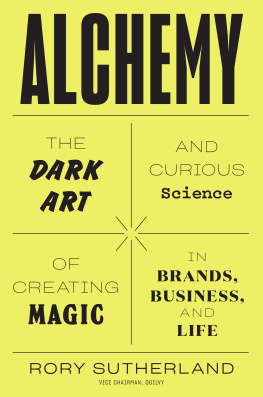




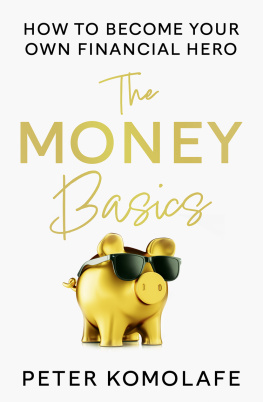
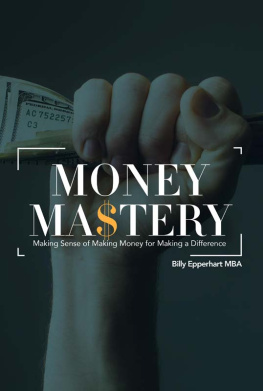
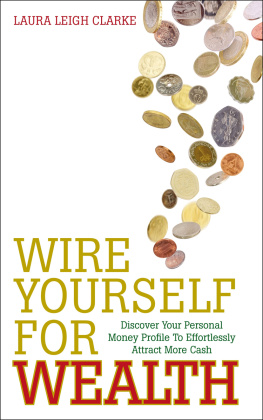

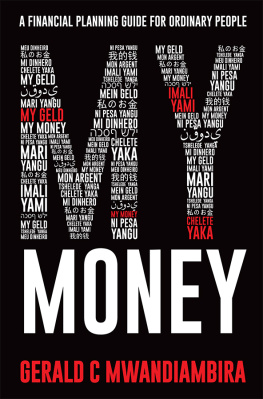
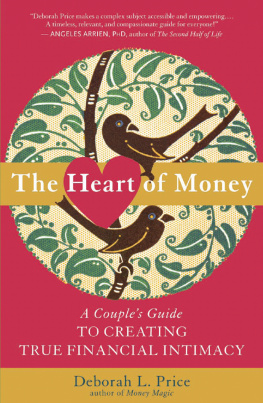
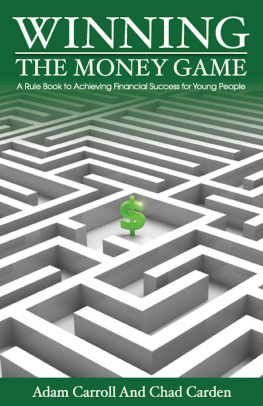

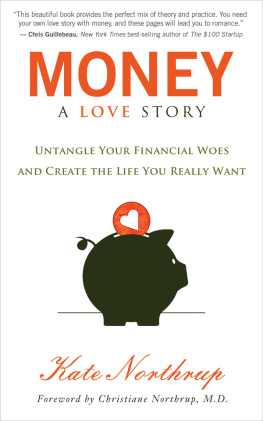
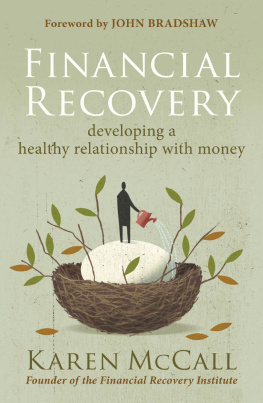

 Ideas which may be familiar but which are seen through a different lens.
Ideas which may be familiar but which are seen through a different lens.